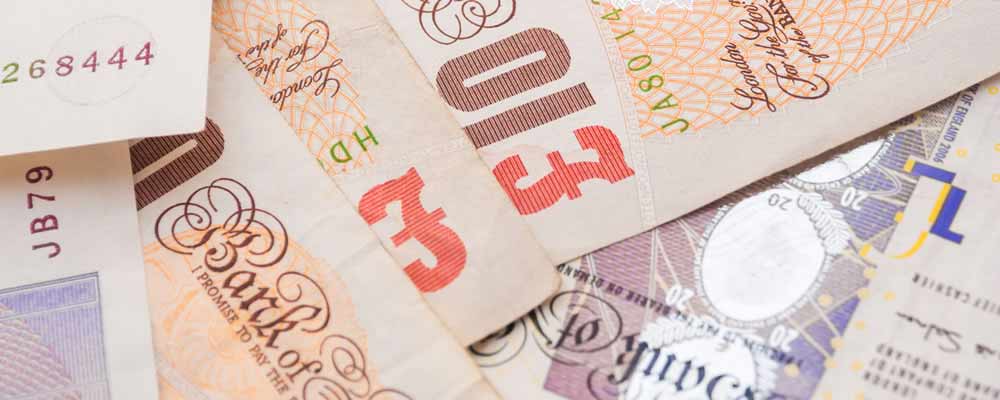The Euro Pound exchange rate is stuck around opening levels thanks to the approach of today’s key Federal Reserve meeting.
- EUR GBP Exchange Rate trending narrowly – All eyes on today’s Fed meeting
- Euro demand kept muted – Italian banking crisis and Greek bailout on investors’ minds
- Pound soft after employment falls – First drop in employment since 2015
- EUR GBP exchange rate forecast – Federal Reserve decision to dominate currency movement
Meanwhile, Eurozone crises continue to weigh on the Euro, while the Pound is kept unappealing by mixed labour market data.
Euro Remains on Top despite UK Manufacturing Orders Rise
Update, 11.25, 16/12/2016; Both Eurozone and UK data has been largely positive today, meaning EUR GBP has been able to hold the morning’s gains. Final Eurozone inflation figures for November printed in line with earlier estimates, although the trade balance figures for October showed a smaller surplus than was expected.
UK manufacturing orders rose at the fastest pace in 20 months, but a stronger-than-expected rise in selling prices indicated that the weakened state of the Pound following the EU referendum was beginning to impact manufacturers.
EUR GBP Recovers Some Losses Following Bank of England Policy Meeting
Update, 15/12/2016; While news that the Federal Reserve expects three rate hikes, not two, in 2017 weakened the Euro, the day’s other central bank news has helped EUR GBP recover slightly. The Bank of England (BoE) believes that the stronger-than-expected Pound exchange rates following the US election will counterbalance the above-forecast inflation figures seen recently, implying that they do not think it necessary to raise interest rates sooner than initially planned.
UK Employment Falls; EUR GBP Exchange Rates Climb
Update, 14/12/2016; Experts are warning that the UK labour market is weakening after employment fell for the first time in a year during the three months to October. The number of people in work had been expected to increase by 50,000, but instead edged lower by -6,000.
Cocktail of Italian Banking Hopes, Greek Debt Misery and Fed Suspense Stalls Euro Pound
The Euro Pound exchange rate is on a weak footing today, as investors await the results of the final US Federal Reserve monetary policy meeting of the year. A rate hike will lower Euro demand, making the downside risks to the common currency too large for speculators at present.
Meanwhile, two of the Eurozone’s highest profile crises – those of the Italian banks and the Greek bailout – continue to unsettle the markets today. Italian banking shares are on the rise, with investors hopeful that many of the country’s weakest banks can be successfully recapitalised.
The main issue has been that the banks have to raise the cash from private investors. EU laws state that a bank’s creditors, such as bondholders, must bear the brunt of a bank’s losses before the taxpayer is allowed to step in.
However, this is a problem for Italy because a large number of the investors supporting Italian banks are so-called ‘retail investors’. These are individuals and small groups that invest for personal reasons, such as working people using a broker to invest some of their earnings for retirement. These investors usually buy what are called ‘subordinated debt’ or ‘junior bonds’.
These are cheaper and therefore come with less benefits than the main securities issued by corporations and banks. Holders of primary debt get priority when it comes to repayments and protection from losses, so any capital the stricken banks raise must be repaid to primary debt holders first. This means that when the bad loans banks such as Monte dei Paschi hold go bad, major bondholders will still be repaid their investment when it is due, but retail investors will incur losses as the bank defaults.
Considering this group involves plenty of individuals and brokerages, this is not a popular or appealing situation.
A recent credit drive from Unicredit has received a warm response from investors, raising market hopes that private entities are happy and willing to give their money to Italy’s floundering banks.
Meanwhile, worries that the continuing fight between the IMF and European Union officials regarding the Greek bailout could see the IMF withdraw its involvement in the discussions has further weighed on the Euro.
Mixed Labour Market Data Leaves GBP EUR Stuck Around Opening Levels

The Pound has been left stuck at opening levels versus the Euro today after mixed data from the UK jobs market. On a positive note, average earnings growth improved above forecast. Excluding bonuses, wages in the three months to October increased 2.6%, while earnings including bonuses rose 2.5%. In both cases this surpassed forecasts by 0.2%.
On a more mixed front, the claimant count rate came in below forecast, but October’s figure was revised higher by more than November’s had bettered estimates. Investors were also put off by the fact UK employment fell for the first time in a year, edging lower by -6,000 instead of rising by 50,000 as predicted.
Rising wages are good for helping combat inflation, but the jobs market edging away from full employment could be the first sign of the hiring slowdown from companies that experts predicted would happen as Brexit approaches.
Euro Pound Exchange Rate Forecast; Fed Meeting to Steal the Show
With the day’s Federal Reserve rate hike being taken virtually for granted by the markets today, the real issue is likely to be how hawkish the Federal Open Market Committee (FOMC) will be regarding the possibility of more rate hikes in 2017. Societe Generale’s Kit Juckes warns investors waiting for hopeful signs will be disappointed, however;
‘A year ago, markets expected the Fed Funds rate to be in a 0.75-1% range by now. By this evening, they are likely to have crawled to 0.50-0.75%. If for no other reason, that should caution anyone expecting much in the way of a hawkish message from the FOMC – this is a Fed leadership group whose main feature is its dovishness.’
Regardless of UK or EU developments, all eyes will remain on the Fed today. Tomorrow’s market movement is likely to be driven by investor reaction to the fallout from the monetary policy decision.
Interbank EUR GBP Exchange Rates
At the time of writing, the Euro Pound exchange rate was trending in the region of 0.84, while the Pound Euro exchange rate was trending around 1.19.



